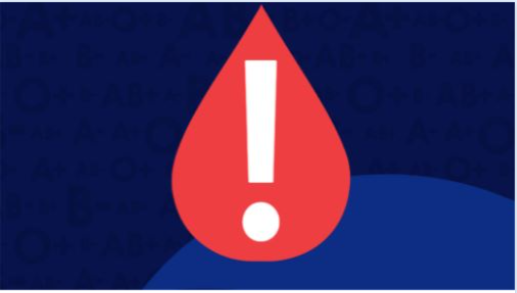Current Projects
N-glycans on neutrophil integrin b2 in progression of acute lung injury
Acute lung injury (ALI) and its most severe form, acute respiratory distress syndrome (ARDS), are lung diseases with acute onset, diffusive pulmonary inflammation, and impaired arterial oxygenation. Despite all medical innovations, treatment of ARDS remains unsolved problems, as evidenced by an overall mortality of ~ 40% for ARDS patients. Multiple clinical data and animal models have proved that neutrophil infiltration into lung tissues greatly influence the progression of inflammation in lungs during ALI. Neutrophils express integrins aLb2 and aMb2. Both b2 integrins are decorated with N-glycans and play an essential role in the regulation of neutrophil recruitment and functions. Glycosylation is the most common post-translational modification of proteins and plays an important role in the regulation of numerous biological processes. Yet the role of glycosylation of neutrophil b2 integrins in the progression of ALI remains elusive. Our preliminary studies have found that removing N-glycans increases integrin aLb2-mediated neutrophil adhesion as well as integrin aMb2-mediated binding of neutrophils to lung epithelial cells. Thus, we are interested to examine the molecular mechanisms for N-glycans to regulate integrin b2-mediated trafficking and function of neutrophils in the progression of ALI. Insights into the fine-tuned neutrophil recruitment and functions may help develop novel effective medicines to save lives.
Patelets in maintaining the blood vessel integrity during inflammation
Vascular leakage drives hypotension, tissue hypoxia, and organ failure in acute inflammation. However, the mechanisms for barrier loss of the blood vessel are poorly understood. Platelets are tiny, anucleate blood cells that function dominantly in hemostasis/thrombosis. Multiple studies also evidence the essential role of platelets in maintaining the vascular integrity during inflammation. We have found that depleting platelets by antibodies or genetic deletion of platelet receptor CLEC-2 increases vascular leakage in septic mice. CLEC-2 is required for the signaling of GPIba, a platelet adhesion receptor that binds VWF initiating platelet adhesion and platelet granule secretion. VWF, produced in blood endothelial cells and platelets, is secreted into blood, and deposited onto the subendothelial matrix. It is possible that platelets protect the vascular integrity during inflammation via interacting with VWF. We are interested in the exploration of the role of GPIba-VWF and -CLEC-2 pathways in regulating the vascular permeability during inflammation. Insights gained from these studies may provide novel approaches to benefit inflammatory patients.
Research Focus
Inflammation is a critical host response to infection, injury, and abnormal or non-self bodies, like tumor cells. Inflammation helps hosts repair injury and eliminate invading pathogens. Yet dysregulated inflammation forms the pathological basis underlying many diseases, such as cardiovascular disease, autoimmune disease, infectious disease, metabolic disease, cancer, aging, etc. Hemostasis is a physiological process that maintains the integrity of the blood vessel wall and prevents loss of blood. Defective hemostasis causes either clotting of the blood vessel (i.e., thrombosis) or bleeding. Hemostasis/thrombosis also cross-talks with inflammation, and, under most pathological circumstances, these two processes positively regulate each other.
Trafficking of blood cells, particularly leukocytes and platelets, is a fundamental cellular event in regulating the development of inflammation and hemostasis/thrombosis. Long-distance trafficking is a remarkable feature of blood cells, and, to function properly, blood cells must enrich into afflicted sites in a timely manner. Thus, optimized trafficking of blood cells ensures a proper inflammatory or hemostatic response, which preserves tissue function and integrity. On the other hand, dysregulated blood cell trafficking leads inflammatory disease and thrombosis or bleeding.
Adhesion molecules are proteins that regulate cell-cell and cell-matrix interactions. Adhesion molecules control blood cell trafficking through regulating adhesion of blood cells onto the blood vessel wall and extravasation of blood cells into tissues. Adhesion molecules also induce biochemical reactions, i.e. cellular signaling, inside blood cells, through which regulate blood cell functions. However, the mechanisms for the regulation of trafficking and functions of blood cells by adhesion molecules remains partially understood. Therefore, the overarching goal of my laboratory is to determine the molecular mechanisms underlying the temporal and spatial regulation of trafficking and functions of blood cells in the progression of inflammation and hemostasis/thrombosis by focusing on the roles of adhesion molecules. A combination of mouse genetic models, in vivo and in vitro microscopy, and biochemical and cellular methods is used in our studies.
Funding Support
- NIH 1R21AI171525, Shao (PI), 05/31/2022 – 06/01/2024 “Role of N-glycans on neutrophil b2 in acute lung injury”
Previous Funding Support
- Career Development Award (18CDA34120009, American Heart Association), Shao (PI), 2018 – 2021
- Postdoctoral Fellowship (15POST25690056, American Heart Association), Shao (PI), 2015 – 2017
Education & Training
Postdoctoral Training
Cardiovascular Biology Research Program; Oklahoma Medical Research Foundation, Oklahoma, US
Doctoral Training
PhD; Biochemistry and Molecular Biology, University of Oklahoma Health Sciences Center, Oklahoma, US
MD; Soochow University, Jiangsu, China
Bojing Shao, MD, PhD, Researcher Profile, PDF
Honors & Prizes
- Young Investigator Travel Award, American Heart Association ATVB conference, 2011
- William G. Thurman Award, Oklahoma Medical Research Foundation, 2023
Service in Scientific Community
- Guest Editor, Frontiers Cardiovascular Medicine
- Review Committee Member, Fellowship of American Heart Association
Selected Publications
Shao B, Hoover C, Shi H, Chen J, Shan X, Lee R, Song J, McDaniel M, McGee S, Zhou M, Bergmeier W, George J, Lopez J, Xia L. Deletion of platelet CLEC-2 decreases GPIba-mediated integrin aIIbb3 activation and decreases thrombosis in TTP. 2022. Blood. 139(6):2523-2533. Selected for “Cover Image” in Blood.
Shi H, Shao B, Gao L, Venkatesan T, McDaniel JM, Zhou M, McGee S, Yu P, Ahamed J, Journeycake J, George JN, Xia L. Endothelial VWF is critical for the pathogenesis of vaso-occlusive episode in a mouse model of sickle cell disease. 2022. Proc Natl Acad Sci, USA. 119(34):e2207592119.
Hoover C, Kondo Y, Shao B, McDaniel M, Lee R, Whiteheart SW, Bergmeier W, McEver RP, Xia L. Heightened activation of embryonic megakaryocytes causes aneurysms in the developing brain of mice lacking podoplanin. 2021. Blood.137(20):2756-2769.
Xie Z*, Shao B* (equal contribution), Song J, Hoover C, McDaniel M, Jiang M, Ma Z, Bai X, Ruan C, Xia L. Monocyte upregulation of podoplanin during early sepsis induces complement inhibitor release to protect liver function. 2020. JCI Insight. 5(13): e134749.
Full List of Publications
Bojing Shao – Search Results – PubMed (nih.gov)
We Are Hiring
We have open positions for Research Assistant and Research Fellow (Postdoctoral Fellow). Applicants will be evaluated on a rolling basis until the positions are filled. Interested applicants should send a cover letter, CV, and contact information for three references to [email protected].


